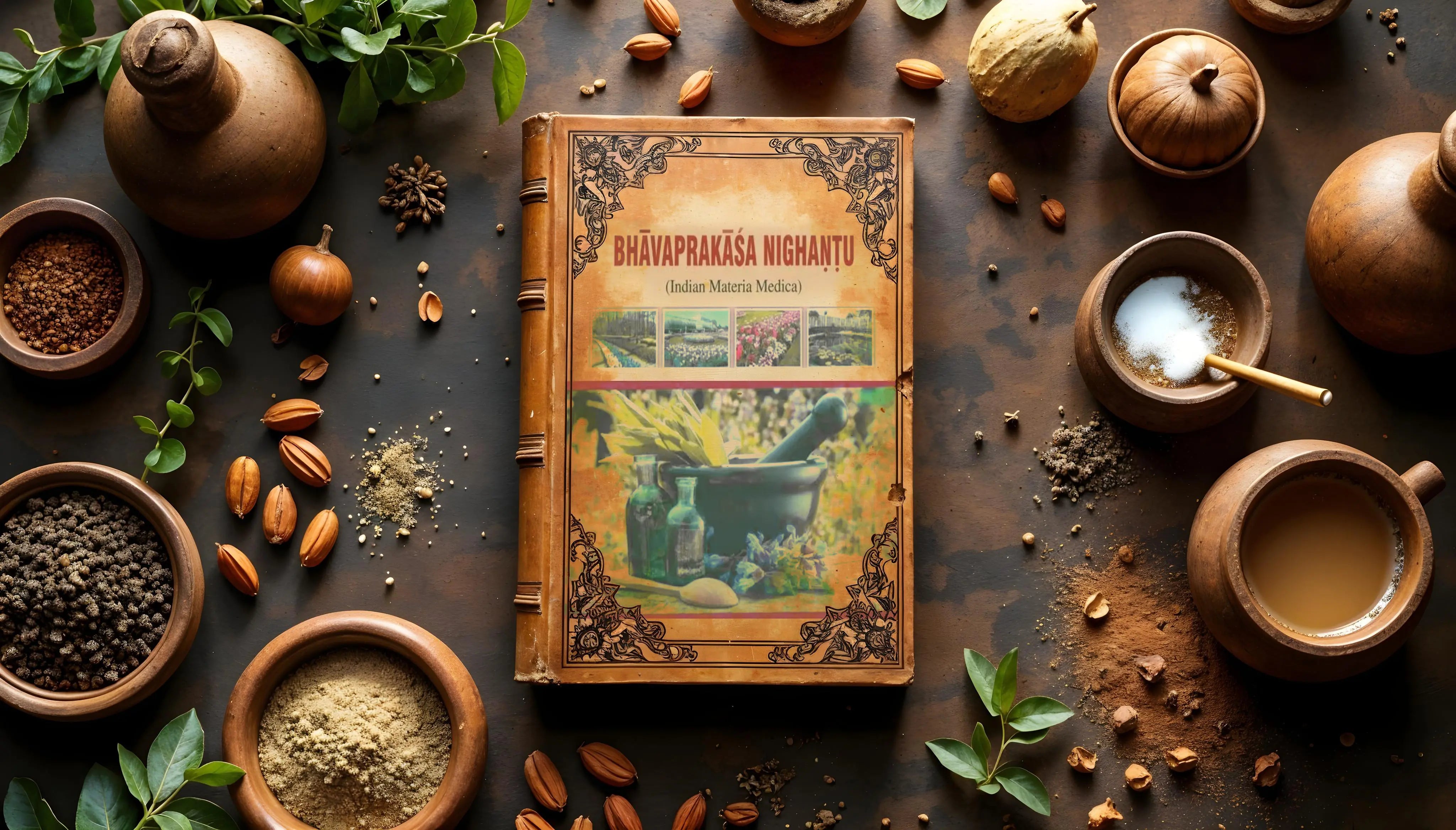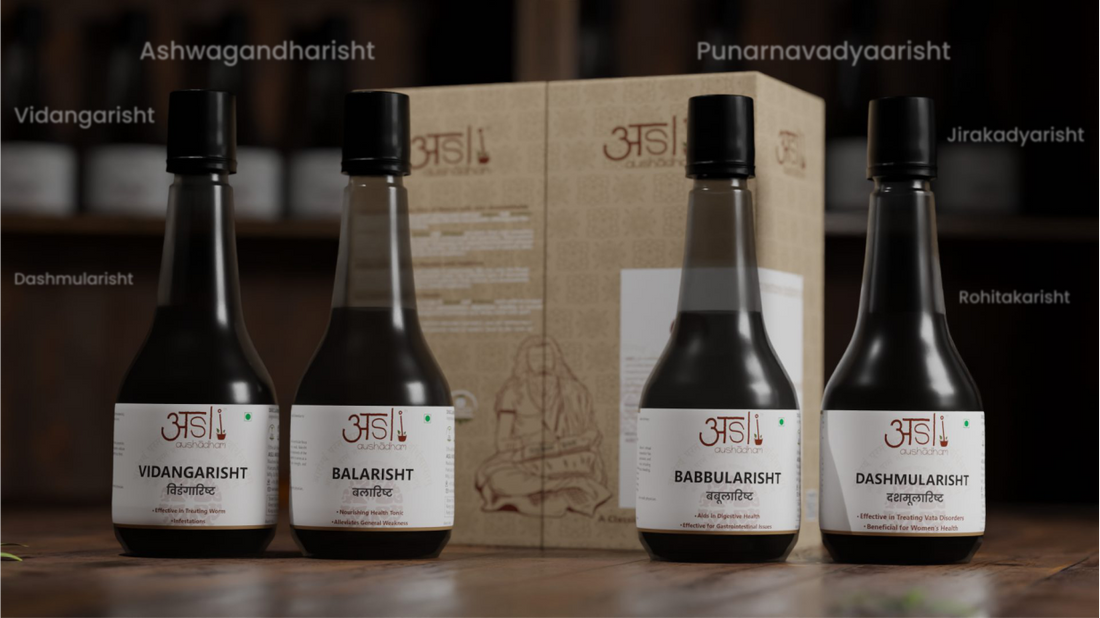India's greatest intellectuals and sages have penned ageless manuscripts that have preserved Ayurveda, the ancient science of life and healing. The Bhavaprakasha Nighantu, a fundamental Ayurvedic classic that provides profound insights into the medicinal characteristics of herbs and plants, is one such key work. Translating and comprehending these ancient books is essential in our day and age to incorporate traditional wisdom into modern health procedures. We discuss the importance of Bhavaprakasha Nighantu and its continued use in Ayurveda in this blog.
The Legacy of Bhavaprakasha Nighantu
1. Historical Background
Authorship: Bhavamisra, a distinguished scholar and physician of the 16th century, wrote the Bhavaprakasha Nighantu. He is renowned for his extensive cataloging of therapeutic herbs and plants.
Structure: Bhavaprakasha Purva Khanda and Bhavaprakasha Uttara Khanda are the two sections that make up the text. The qualities, applications, and medicinal advantages of numerous plants are thoroughly described in the Nighantu (materia medica) section.
2. Thorough Herbal Understanding
Herbal Descriptions: Over 400 medicinal plants are described in-depth in Bhavaprakasha Nighantu. The Sanskrit name, botanical name, habitat, physical attributes, and medicinal qualities of each plant are included in each entry.
Formulations and Usages: The book also provides information on several Ayurvedic combinations of herbs for optimal benefit, as well as their applications.
Modern Relevance of Bhavaprakasha Nighantu
1. Integrating Modern Science with Ancient Wisdom
Scientific Validation: The therapeutic effects of several of the herbs mentioned in Bhavaprakasha Nighantu have been confirmed by contemporary scientific investigation. With this validation, Ayurveda becomes more approachable and believable by bridging the gap between traditional wisdom and contemporary science.
Phytochemistry: Recent research on phytochemistry has revealed the active ingredients in these herbs, substantiating their traditional usage and extending their therapeutic usefulness in the modern era.
2. Improving Contemporary Ayurvedic Techniques
Herbal cures: Bhavaprakasha Nighantu's expertise is incredibly helpful in creating potent herbal cures. There are currently products on the market that offer natural remedies for a range of health problems and were inspired by these traditional formulas.
Integrative Medicine: Bhavaprakasha Nighantu's insights enhance the incorporation of Ayurveda with contemporary medical procedures. Integrative medicine encourages overall health and wellness.
3. Instructional Materials
Curriculum: An essential component of the Ayurvedic education curriculum is Bhavaprakasha Nighantu. It guarantees the preservation of conventional knowledge by acting as a thorough resource for practitioners and students.
Research and Development: The book lays the groundwork for further studies and advancements in Ayurvedic medicine, promoting creativity while maintaining a traditional base.
Important Herbs of Nighantu, Bhavaprakasha
1. Ashwagandha (Withania somnifera)
Properties: Ashwagandha, well-known for its adaptogenic qualities, aids in stress management, raises vitality levels, and improves overall health.
Uses: It is used into formulations to enhance immunity, support mental well-being, and encourage physical stamina.
2. Guduchi (Tinospora cordifolia)
Properties: The immune-stimulating and detoxifying properties of guduchi are well regarded. In Ayurveda, it is referred to as "Amrita" or "divine nectar."
Uses: Guduchi is used to treat chronic illnesses like diabetes and arthritis, improve liver function, and strengthen immunity.
3. Haritaki (Terminalia Chebula)
Properties: Haritaki is regarded as a potent herb for rejuvenation. It is among the three components of the well-known Triphala formula.
Uses: It improves cleansing, facilitates digestion, and enhances general health and lifespan.
4. Shatavari (Asparagus Racemosus)
Properties: Shatavari is well-known for its revitalizing and nourishing qualities, especially for the health of women.
Uses: It helps maintain hormonal balance, enhances lactation in nursing moms, and improves reproductive health.
In summary
The Bhavaprakasha Nighantu is proof of the deep wisdom of the ancient Indian sages. Ayurveda's eternal relevance is demonstrated by its current translations and applications. Ayurveda's rich past can be respected by incorporating Bhavaprakasha Nighantu's wisdom into modern health procedures and adopting a holistic approach to well-being.
Urge to Take Action
Examine the ageless wisdom of Ayurveda and learn about its advantages for leading a healthy, happy life. To find out more about Ayurvedic goods influenced by these age-old principles, visit the Asli Aushadham website. Comment below with your opinions on the Bhavaprakasha Nighantu and its applicability in the modern era, and sign up for our newsletter to receive more thought-provoking articles and updates.





